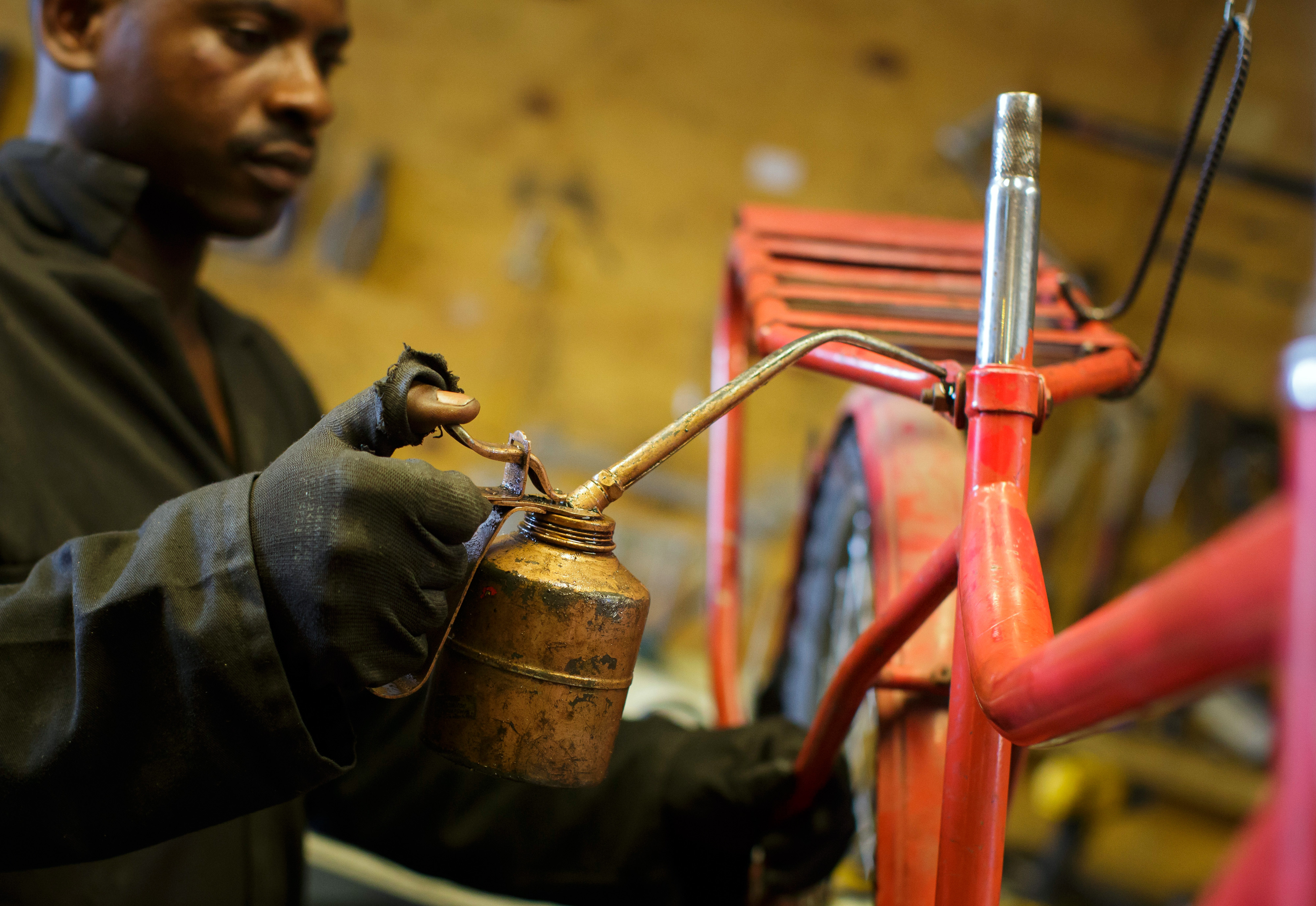Bicycle workshop in Mozambique
Copyright© Thomas Trutschel/photothek.net
Background Long road to peace and stability
The RENAMO rebel movement (Resistência Nacional Moçambicana) fought against this regime in a civil war that lasted 16 years. More than one million people lost their lives in the conflict and one third of the population was displaced. By the time the two warring parties signed a peace agreement in 1992, most of the country lay in ruins.
Democratisation
Mozambique has since taken major steps towards democracy. Elections have, however, repeatedly been marred by irregularities. This compromises the democratic legitimacy of the parliament and the government.
RENAMO, which has become established as the main opposition party, is demanding that FRELIMO, which has been in government since independence, share some of its political power, particularly at the level of the provinces. Senior figures on both sides have been assassinated and there have been localised armed conflicts, resulting in hundreds of deaths, between government forces and the armed wing of RENAMO.
After many years of negotiations, a peace accord was signed in mid-2019. Among other things, it provides for greater decentralisation and the disarmament of former RENAMO rebels and their integration into the Mozambican forces.
As at: 18/01/2023
